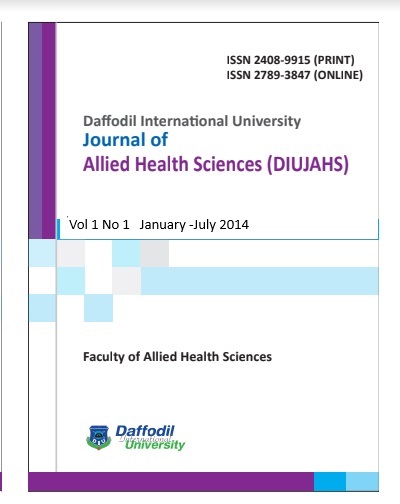Health Effects of Biomass Fuel Combustion on Women and Children and Intervention of Improved Cook Stove and Hand Washing Practices (Phase – I)
DOI:
https://doi.org/10.36481/diuhls.v01i1-2.qjbbdr23Keywords:
Indoor Air Pollution, Health impact of Bio-mass fuel combustionAbstract
For the purpose of this study 450 intervention and 150 control households (HHs) were selected. Among the intervened HHs improved cooking stoves and soap were provided. Qualitative information was collected through FGDs. The pre- intervention FGD focused, particularly on understanding how local women perceive the problems associated with fuel burning, exposure period, fuel usages, and their willingness to respond to the project interventions. The post intervention FGD focused on the acceptance of the intervention, how the women perceive the benefits, problems with improved stoves, any modification they feel needed in case of operation, etc. Twenty four (24-h) hours air samples for particulate matter (PM) were collected by using an air filter. The data gathered during sampling were fed into computers, checked, cleared and used for subsequent analysis. Detail will be delivered in Phase II report. This report contains baseline information. Above 67% of respondents of the studied HHs belong to age group between 19-29 years. A 59.5% of the studies HHs do not purchase fuel for cooking and about 83% HHs use cow dung and crop residues/dry leaves as fuel during dry season, while 16.92% use wood; however, they also use crop residues and dry leaves. Average cooking experience is 10.25 years and every day the respondent mothers spend 3.34 hours in the kitchen. Above 82% women reported to take their children to kitchen during cooking, while 9.25% women reported to take their children to kitchen almost always and 7.27% respondent told that they usually do not take their children to kitchen during cooking. A large proportion of the respondent women (234) suffer from some sorts of respiratory troubles. Of them, 28 women have known COPD history. About 19% children of studied HHs suffer from ARI, of them 61.6% (11.5% of total) have known pneumonia history.

